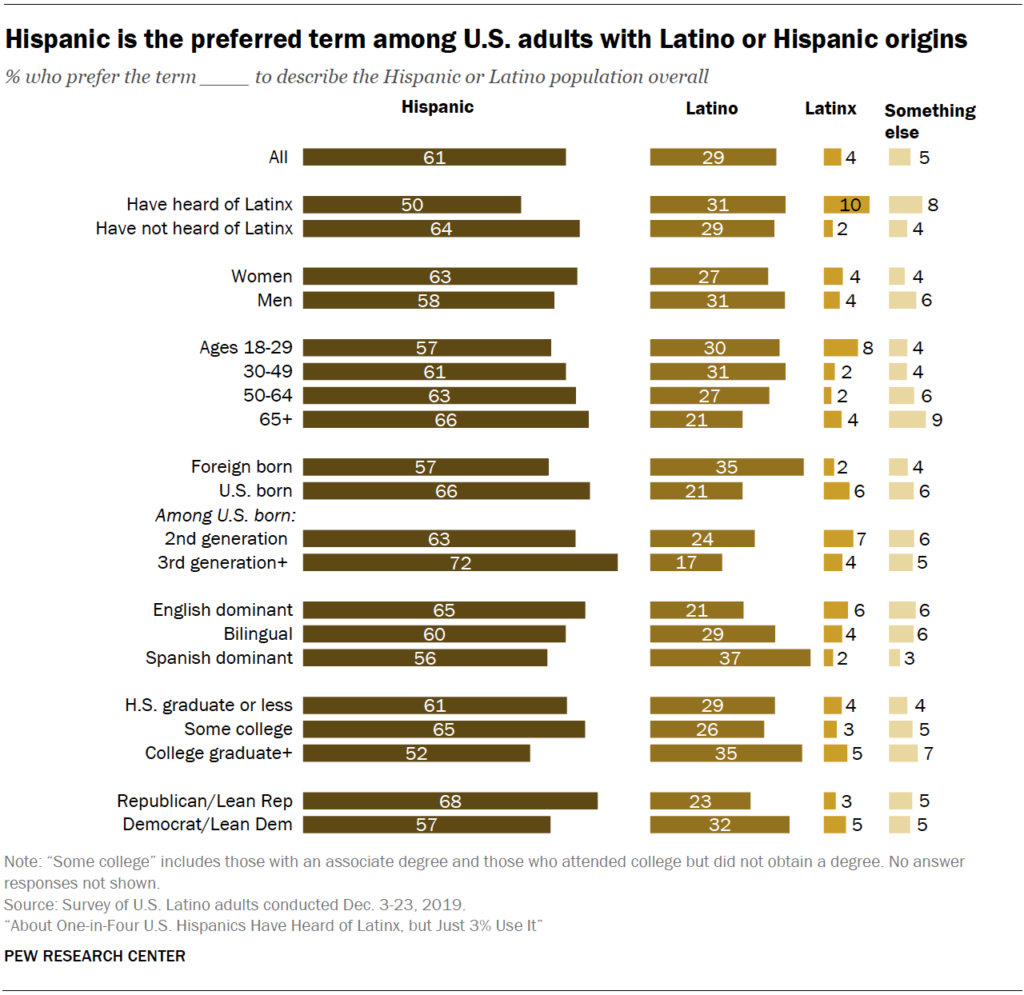Hispanic, Latino, Latinx: Key Distinctions
[This blog post was originally published on: Aug 27, 2019 at 19:32 – and it has been updated on Sep 22, 2020 at 10:32]
“Latinx” is not a typo. Yes, Latinx is, in fact, a word, a gender-neutral neologism, sometimes used instead of Latino or Latina, and even Latin@, to refer to people of Latin American cultural or racial identity in the United States. The ⟨-x⟩ suffix replaces the standard ⟨-o/-a⟩ ending of nouns and adjectives, typical of grammatical gender in Spanish. Its plural is Latinxs.
“Latino” refers to people of Latin American origin. This includes Brazil and excludes Spain.
“Hispanic” is basically based on whether you or your family speak the language of Spanish whereas Latino is focusing more on geographic location, that being Latin America
Get in touch with us, and then decide.
Hispanic Market Advisors helps you connect with the online Latino market and expand your reach.
Who started Latinx?
Latinx was originally formed in the early aughts as a word for those of Latin American descent who do not identify as being of the male or female gender or who simply don’t want to be identified by gender. More than likely, there was little consideration for how it was supposed to be pronounced when it was created.
Is Latinx the Next Big Demographic Revolution?
The U.S. Latinx community makes up 18 percent of the population, and is a lot younger than the median age of non-Hispanic white. The next big demographic revolution is upon us — and it’s Latinx, says Nielsen.
Typically you imagine folks 18 to 24 — regardless of their ethnic background — having the same tech adoption rates whether you’re a Millennial or Gen Z, but that’s not what we see. We see the Latinx community way over indexing for a lot of these digital, social behaviors.
"It has been projected that as of 2025, employees of #Latinx descent will account for one out of every two workers entering the United States labor market." https://t.co/GQzUdNz2iq
— HispanicMktAdvisors (@HispanicMarkets) September 26, 2019
To Latinx Or Not To Latinx?
Who Is Using #Latinx” and Why?
According to a Huffpost article, the word “Latinx” (pronounced “La-teen-ex”) has been used more and more lately.
It is most used by scholars, activists and an increasing number of journalists and writers, Latinx is quickly gaining popularity among the general public, although many Latinos dislike the term.
#Latinx make up nearly 20% of the population
#Latinx make up nearly 20% of the population, 25% of movie ticket sales, but just 3% of the workforce in front and back of camera. I hope today’s meeting with studio exec’s went well, because we are long overdue for change ✊🏽 #RepresentationMatters pic.twitter.com/lxE7RTE0rd
— Felicia Mora (@diosdeadios) November 9, 2019
La Oportunidad Latinx
However, Hispanic continues to be the preferred term to describe the Hispanic or Latino population overall
Interested in Working With Us?
Let us know by suggesting a date/time for a complimentary introductory call. If we feel we can help and there’s a match between your needs and our capabilities, we’ll then offer you with a Site Audit for you to get a picture of your current situation and map out possible solutions that work for you along with a proposal.
(* Booking Policy: If you don’t see your preferred time available on the calendar below you can send us an email at appointments@hispanicmarketadvisors.com.)
We hope to see you join on our community of successful customers soon!
The journey of boosting your Latino SEO for sustainable growth starts with your first step in the right direction. Others make empty promises, we deliver trackable results!
Copyright © 2019 The Nielsen Company (US), LLC. All Rights Reserved.



Leave a Reply